Striking gold with a hoard of lost property
- Published
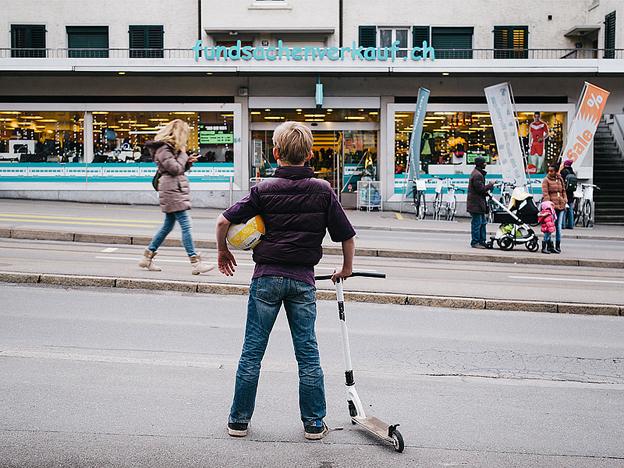
If you've ever lost anything while travelling through Switzerland and never seen it again, the chances are that it eventually passed through the hands of one man in Zurich.
"Every month we get 8,000 found objects," says Roland Widmer, pulling down one of the bulging crates from the shelves of his shop in Zurich. "The most common item is glasses. We get around 20 pairs every day."
Widmer is the greying, bespectacled director of Fundsachenverkauf (or Lost property sale), a company he set up in 2005 to relieve Switzerland's mushrooming lost property departments.
So far, it's been a successful enterprise. For each pallet that the 55-year-old receives from partners such as Zurich airport or the postal service, he pays a flat fee, and although there is a lot of junk, there is also plenty of treasure.
"At the moment, we have a diamond bracelet worth 26,000 francs (£17,600, $27,000) and a watch estimated at 36,000," Widmer tells me.
Designer clothing, sunglasses, laptops and even musical instruments are also common finds in a country consistently ranked as one of the wealthiest in the world. Airports, especially, offer rich pickings.
"The quality is more expensive, a little nicer," he says.

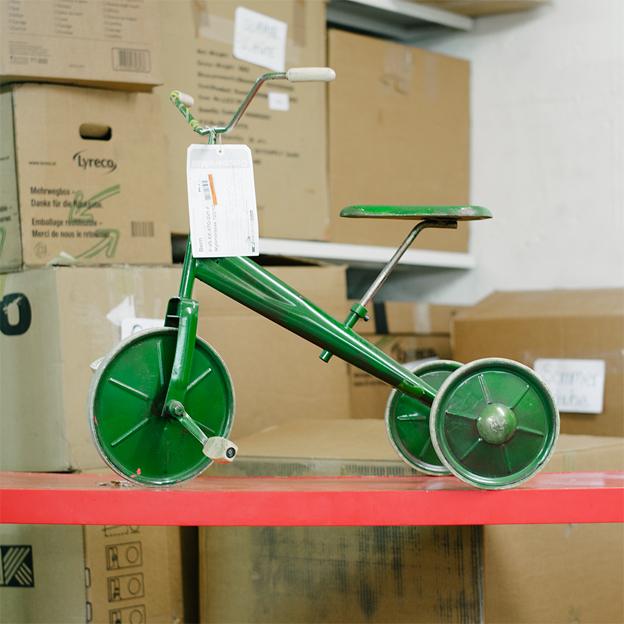
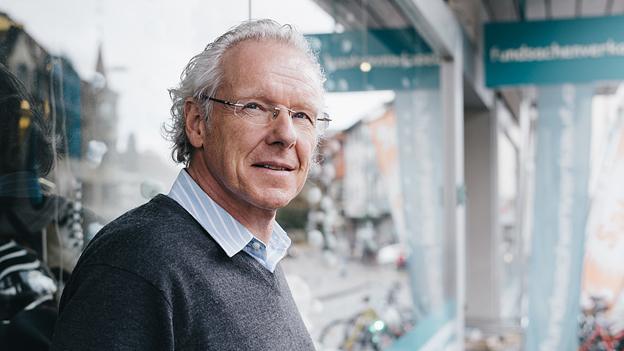
Roland Widmer, the founder of Fundsachenverkauf
In Switzerland, travellers have between one and three months to reclaim their lost property, depending upon its value.
"Below a value of 50 francs [£34, $52], objects are sent to the Fundsachenverkauf shop after one month," says Donatella Del Vecchio, spokesperson for the Swiss rail company SBB.
"Beyond 50 francs, SBB will retain the item for three months, in accordance with the provisions of the Transport Act."
More than 100,000 forgotten items were collected by SBB last year alone. Mobile phones, keys, hats and purses were among the most common.
It was in fact the SBB that kick-started Widmer's unusual venture 10 years ago, after the railway operator put its lost property problem out to tender.
Widmer's Fundsachenverkauf solution won the competition - and nearly two thirds of the items he receives still come from the railways. The rest come from airports, the postal service and buses.
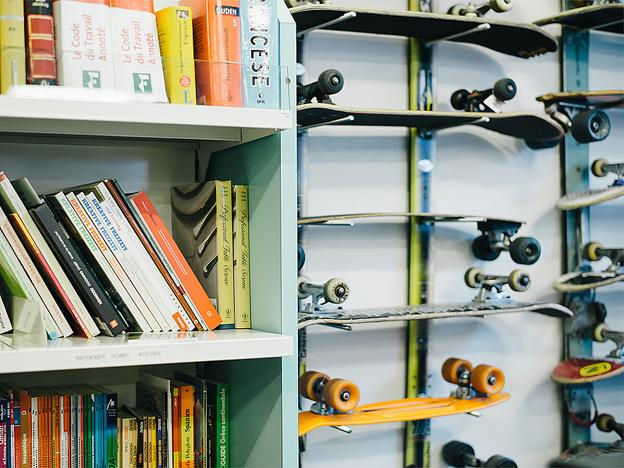
After three months, people who have lost their belongings occasionally appeal to Widmer, and sometimes they are lucky.
"When we sell it they can't have the item, but they can have the money," he says, good-naturedly.
Some of his more unusual acquisitions have included a gallstone from the 1960s, a prison uniform, an urn, and a prosthetic leg. His favourite is a ring with poison inside ("And then you kill your husband!" he laughs).
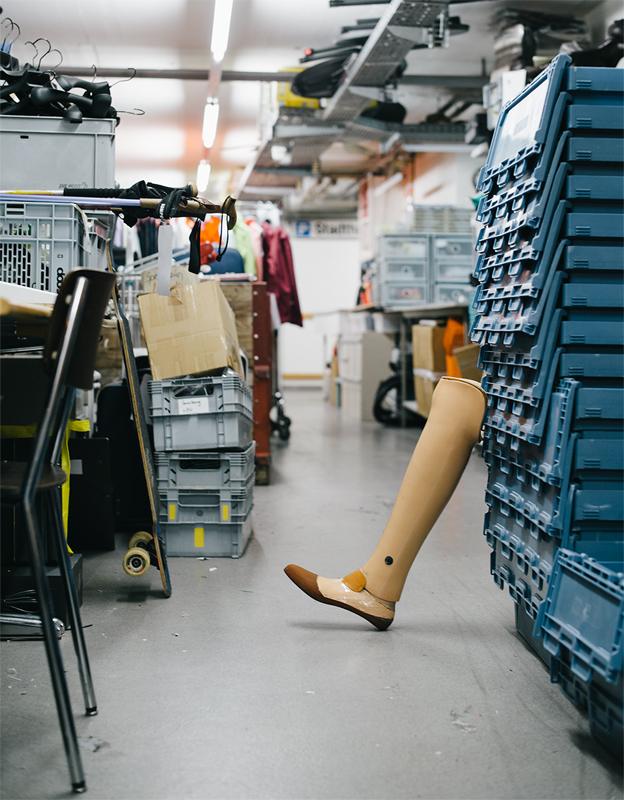
Once in a while, Widmer finds it difficult to let go. "I collect very extraordinary pieces," he says, with a smile. "One recent new addition is an assortment of brushes from a chimney sweep."
In a back room at his Zurich store, three technicians are hard at work. All of the laptops and electronics here have their memories wiped, before being restored. Specialists are even on hand to fix jewellery and recycle items, creating new and unique pieces from broken rings, single earrings, scrap gold and pendants.
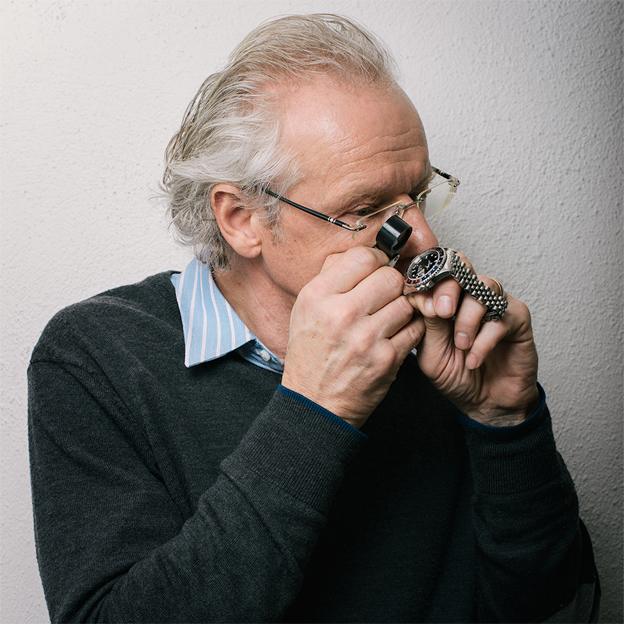
"With our business, we execute a very interesting form of recycling," says Widmer. "Recycling is - today and for the future - very important."
Some items are put up for sale at auction. Others go online, where a cursory click-through turns up a Bulgari ring for 14,999 francs, a handmade chessboard for 2,490 francs, and several gleaming MacBooks. Bongo drums and a harmonica are among the musical bargains to be had.
But it's more fun to browse through the maze of odds and ends in the Zurich shop, where bicycles hang from the ceiling, gloves are clipped to clothes pegs, and, in one corner, a Venetian carnival mask watches over it all.

Among the more expensive items in stock at the time of writing is a bracelet with a price tag of 15,000 francs, a 5,000-franc violin, a 9,000-franc Rolex, and a Quinting watch for 11,000 francs.
Some items are given away to charities.
Widmer proudly claims to adhere to Kaizen, a practice of continuous improvement that was originally introduced to the West by Japanese businessman Masaaki Imai. "When you receive up to 80,000 items per year, you have to have a good process," he says. "It's important to us that everything is clean, priced well, and that everyone knows what to do."
Fundsachenverkauf has 18 employees, one of them Widmer's wife, who oversees the finances.
"I wear the trousers and she tells me which ones," he says.
Even with the occasional high-value finds, Fundsachenverkauf's coffers are never overflowing, Widmer says. The value of the goods coming in is very unpredictable, which makes the business a precarious one.
He hopes for profits, but it is the thought of satisfied bargain hunters that truly makes him happy.
Meanwhile, the absent-minded can perhaps rest easy knowing that their lost possessions will enjoy a new lease of life.
Photographs by Robert Kopecky, external.

The Magazine in Switzerland

Subscribe to the BBC News Magazine's email newsletter to get articles sent to your inbox.